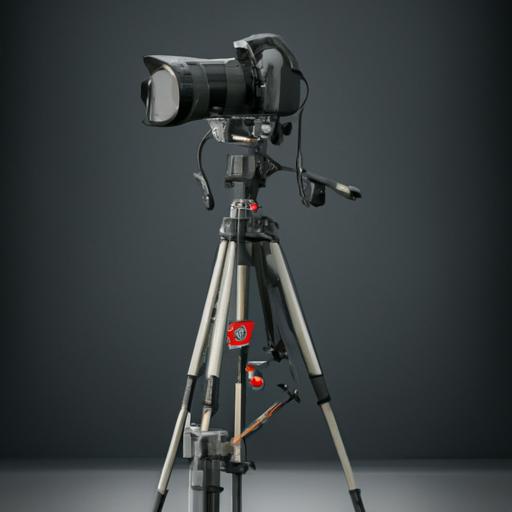Are you a photographer or videographer looking to get the best possible images and videos with your Fuji camera? If so, you may be wondering if you can use Canon lenses on your Fuji camera.
This article will provide you with all the information you need to know about using Canon lenses on your Fuji camera! Well discuss what a Canon lens is, what a Fuji camera is, whether Canon lenses can be used on Fuji cameras, what the limitations are, what tools are necessary to connect a Canon lens to a Fuji camera, how to attach a Canon lens to a Fuji camera, and the differences between a Canon lens and a Fuji lens.
Keep reading to learn more!
Table of Contents
Short Answer
No, you cannot put a Canon lens on a Fuji camera.
Each camera brand has its own lens mount system, and lenses are designed to fit only certain mounts.
It is possible to use an adapter to mount a lens from one brand onto a camera body from another brand, but not all lenses and adapters are compatible.
Additionally, using an adapter may result in a decrease in image quality or other performance issues.
What is a Canon Lens?
A Canon lens is a type of interchangeable camera lens made by the Japanese company Canon.
Canon lenses are highly sought after due to their superior optics and build quality, and are used by professional photographers and hobbyists alike.
Canon lenses come in a variety of shapes and sizes, and can be used for both still photography and video.
They are typically made of metal and glass, and are designed to provide sharp images with accurate colors and good contrast.
Canon lenses are available for a range of focal lengths, from wide-angle to telephoto, and feature a variety of features such as image stabilization and weather sealing.
Additionally, Canon lenses can be used with a variety of camera bodies, including DSLRs, mirrorless cameras, and point-and-shoot cameras.
What is a Fuji Camera?

Fuji cameras are digital single-lens reflex (DSLR) cameras, primarily designed for photography and videography enthusiasts.
They are renowned for their high-quality image sensors and lenses, as well as their ease of use.
Fuji cameras are also known for their low-light capabilities and wide dynamic range, making them a great choice for both amateur and professional photographers alike.
Additionally, Fuji cameras offer a wide range of features, from advanced autofocus and manual controls to powerful video recording capabilities and more.
Fuji cameras have become a popular choice for photographers of all levels, thanks to their affordability, image quality, and features.
Can Canon Lenses Be Used on Fuji Cameras?
The short answer to this question is yes, Canon lenses can be used on Fuji cameras.
However, there are a few things to consider before attempting to do so.
This is because the lens mount system between Canon and Fuji cameras is different, and that requires an adapter to be used when attaching the lens to the camera body.
The adapter allows the Canon lens to be attached to a Fuji camera, but there are some limitations that come along with the adapter.
First, the lens may not be able to utilize all of its features on the Fuji camera.
Autofocus may not be available, which means the user will have to manually focus the lens instead.
Additionally, because the lens is being used with an adapter, the camera body wont be able to communicate with the lens, so certain camera settings wont be available.
It is also important to note that while the adapter allows the Canon lens to be used on the Fuji camera, the lens may not be able to reach its full potential.
For example, the lens may not be able to achieve its maximum aperture or focal length.
Therefore, it is important to understand the limitations of using a Canon lens on a Fuji camera before attempting to do so.
What are the Limitations of Using a Canon Lens on a Fuji Camera?

When using a Canon lens on a Fuji camera, it is important to understand the limitations of the process.
The main limitation is that an adapter must be used to attach the Canon lens to the Fuji camera body.
This adapter prevents the lens from being able to utilize all of its features.
For example, autofocus may not be available and the lens may need to be manually focused.
Additionally, because of the adapter, the lens will not be able to communicate with the camera body, so the user will not have access to certain camera settings.
Another limitation to be aware of is that the lens will be limited to its minimum aperture.
This means that the lens will be stuck at its widest aperture and will not be able to stop down any further than that.
This could be a problem if you need to use a narrow aperture for certain types of photography.
In addition, the lens may not be able to reach infinity focus, which can be a problem if you are shooting landscapes or other subjects that require a large depth of field.
Finally, because of the adapter, the lens may not be able to achieve its optimal sharpness.
This can be especially problematic if you are shooting with a high-resolution camera, as the adapter may prevent the lens from being able to resolve the maximum amount of detail.
For this reason, it is important to check your images and make sure that the lens is able to achieve its optimal sharpness before committing to a particular shot.
What Tools Are Necessary to Connect a Canon Lens to a Fuji Camera?
In order to use a Canon lens on a Fuji camera, a special adapter is necessary.
This adapter allows the Canon lens to be attached to the Fuji camera body, effectively bridging the gap between the two incompatible mount systems.
While the adapter may vary depending on the lens and camera model, most adapters are relatively small and lightweight, making them easy to carry and use on the go.
The adapter is used to physically attach the Canon lens to the Fuji camera, but in order to use the lens, the user must also understand the limitations that come with using a Canon lens on a Fuji camera.
Autofocus, for example, may not be available due to the adapter, and the lens may need to be manually focused instead.
Additionally, because the lens and camera body are not communicating directly, the user may not have access to certain camera settings.
It is important to understand these limitations before using a Canon lens on a Fuji camera.
While it is possible to use a Canon lens on a Fuji camera, it is important to know what features and settings may be lost in the process.
With the right adapter and understanding of the limitations, however, users can take advantage of the wide range of lenses available for Canon cameras on their Fuji cameras.
How Do You Attach a Canon Lens to a Fuji Camera?

Attaching a Canon lens to a Fuji camera requires the use of an adapter.
This adapter allows the Canon lens to fit the Fuji camera body, so that it can be used as normal.
However, due to differences in the mount system, the lens will not be able to utilize all of its features when attached to the Fuji camera.
For example, autofocus may not be available, and the lens may need to be manually focused instead.
In addition, the adapter prevents the lens from being able to communicate with the camera body, so the user will not have access to certain camera settings, such as white balance, exposure settings, and other camera functions.
When choosing an adapter to use, make sure that it is compatible with the Canon lens and the Fuji camera body.
Also, make sure that the adapter is of good quality, as a poor quality adapter can cause issues with the lens or camera, and could potentially damage either one.
When attaching a Canon lens to a Fuji camera, it is important to remember that the lens will be limited in its functions.
It is important to understand the limitations before using the lens on the Fuji camera.
Be aware of the autofocus and communication issues, and be prepared to manually focus the lens and adjust camera settings accordingly.
What is the Difference Between a Canon Lens and a Fuji Lens?
The primary difference between a Canon lens and a Fuji lens is the mount system.
Canon lenses use a Canon EF mount, while Fuji lenses use a Fuji X mount.
The two systems are not compatible, meaning that a Canon lens cannot be attached directly to a Fuji camera body.
Additionally, because of the different mount systems, the lens will not be able to utilize all of its features when mounted to a Fuji camera.
Autofocus, for example, may not be available, and the lens may need to be manually focused instead.
Furthermore, because of the different mount systems, the lens will not be able to communicate with the camera body, so the user will not have access to certain camera settings.
The Canon EF mount system was developed in 1987, and is one of the most popular and widely used lens mount systems in the world.
Canon lenses use electronic contacts to communicate with the camera body, and are designed to work with Canons autofocus system.
Canon lenses are also designed to take advantage of the cameras image stabilization technology.
The Fuji X mount system, on the other hand, was developed in 2012 and is designed for the Fuji X series cameras.
Fuji lenses use electronic contacts to communicate with the camera body, and are designed to work with Fujis autofocus system.
Fuji lenses are also designed to take advantage of the cameras image stabilization technology.
When a Canon lens is attached to a Fuji camera body using an adapter, the lens will not be able to take advantage of the cameras autofocus system or image stabilization technology.
In addition, the lens will not be able to communicate with the camera body, so the user will not have access to certain camera settings.
As a result, it is important to understand the limitations of using a Canon lens on a Fuji camera before attempting to do so.
Final Thoughts
Using a Canon lens on a Fuji camera is possible, though the process can be complex.
It requires an adapter to connect the two, and some features of the lens may not be available due to differences in the mount system.
It is important to understand the limitations and necessary tools needed before attaching a Canon lens to a Fuji camera.
With the right knowledge and understanding, you can gain access to new lenses and create stunning images with your Fuji camera.

